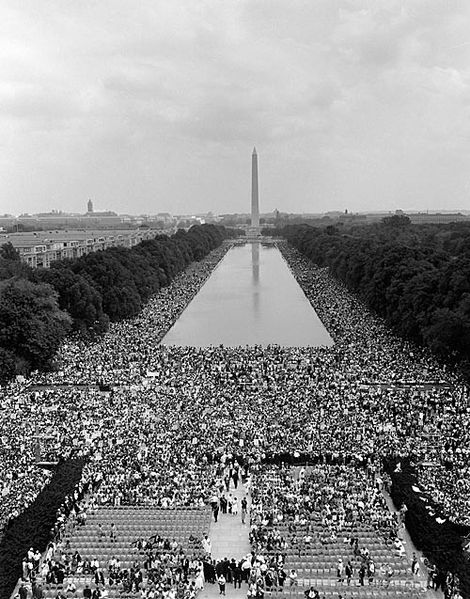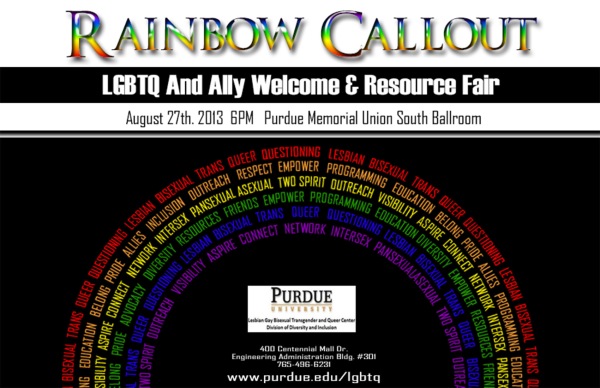Today, August 28, 2013, is the 50th anniversary of the March on Washington and Dr. Martin Luther King, Jr.’s famous “I Have a Dream” speech. King was a dynamic speaker, and the March on Washington for Jobs and Freedom was one of the largest rallies for human rights in America’s history, with estimates of the number of participants ranging from 20,000 to 300,000, the vast majority of whom were African-American.
In celebration of that historic 1963 rally for human rights, watch Dr. King deliver his speech in front of the Lincoln Memorial in Washington, D.C.
Or better yet, gather around the Peace Pole in front of the Baptist Student Foundation here at Purdue today from 4:30-5:00pm for a local reading of the speech. For more info, check out the Facebook page for the event.
“I HAVE A DREAM”


